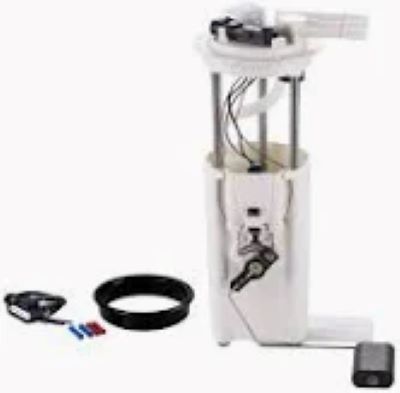Replacing a fuel pump can improve MPG where the previous pump underperformed due to its age, wear, or contamination. A fuel pump's primary duty is to maintain constant fuel pressure-so that the proper air-fuel mixture for efficient combustion prevails, usually between 40 to 60 psi in most fuel-injected vehicles. As a fuel pump weakens, it may not be able to deliver the fuel at this required pressure, causing the engine to run inefficiently. This will mean the mixture of the air and fuel will be imbalanced, for which the engine will try to adjust by burning more fuel. This can drop MPG ratings by 10-15%.
Symptoms include slow acceleration, hard starting, or low power-all signs that the engine is not getting an appropriate amount of fuel. Without the proper delivery of fuel-as the engine runs out of sufficient amounts of fuel-the ECU is forced to adjust the timing of injectors and make up for fuel deficiencies, thereby cutting down on overall fuel economy. A new, efficient fuel pump will be able to help restore optimal fuel pressure in order to improve combustion efficiency and recover MPG losses.

Contaminated fuel can cause internal wear on fuel pumps. The perpetual cycle of debris and sediment emanating from low-quality fuel will inevitably block the pump and degrade its efficiency over time. A portion of this buildup may be mitigated by periodic use of fuel system cleaners, but after a while, a replacement will be in order-so especially if the pump is already near or at its 100,000-mile lifespan. For vehicles always running on low fuel, which in return keeps the pump operating under very hot conditions, the lifespan will be shorter. In that case, early replacement will definitely be advantageous, especially in fuel efficiency.
For the high-performance uses, a high-quality fuel pump will maintain a better MPG because it comes out to meet the high demands of fuel by the engine without overexerting. Most high-performance engines operate on high revolutions per minute and require a constant flow of fuel for maintaining power and efficiency; hence, an upgraded fuel pump engineered for such load pulls can support performance and fuel economy.
As the late Carroll Shelby once said, "Horsepower sells cars, but torque wins races," indicating there needs to be a balance with regards to performance in the engine. A reliable Fuel Pump makes fuel delivery constant for better MPG, fewer chances of engine compensations, and optimal performance under all driving conditions. With a good fuel pump, all the precise fuel the engine requires for better MPG can be ensured, and hence replacing a pump may prove to be one of the better choices for drivers in quest of an improvement in fuel economy.